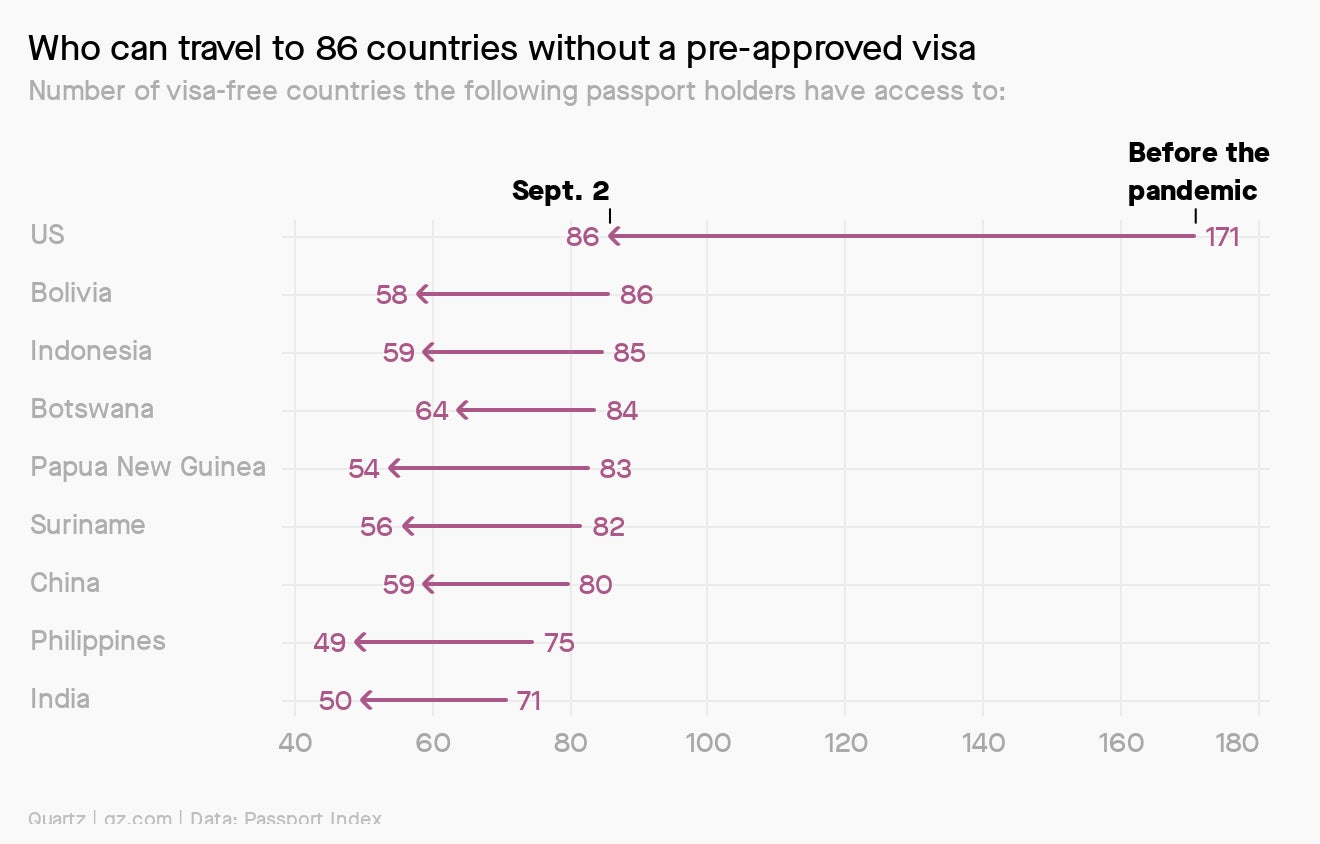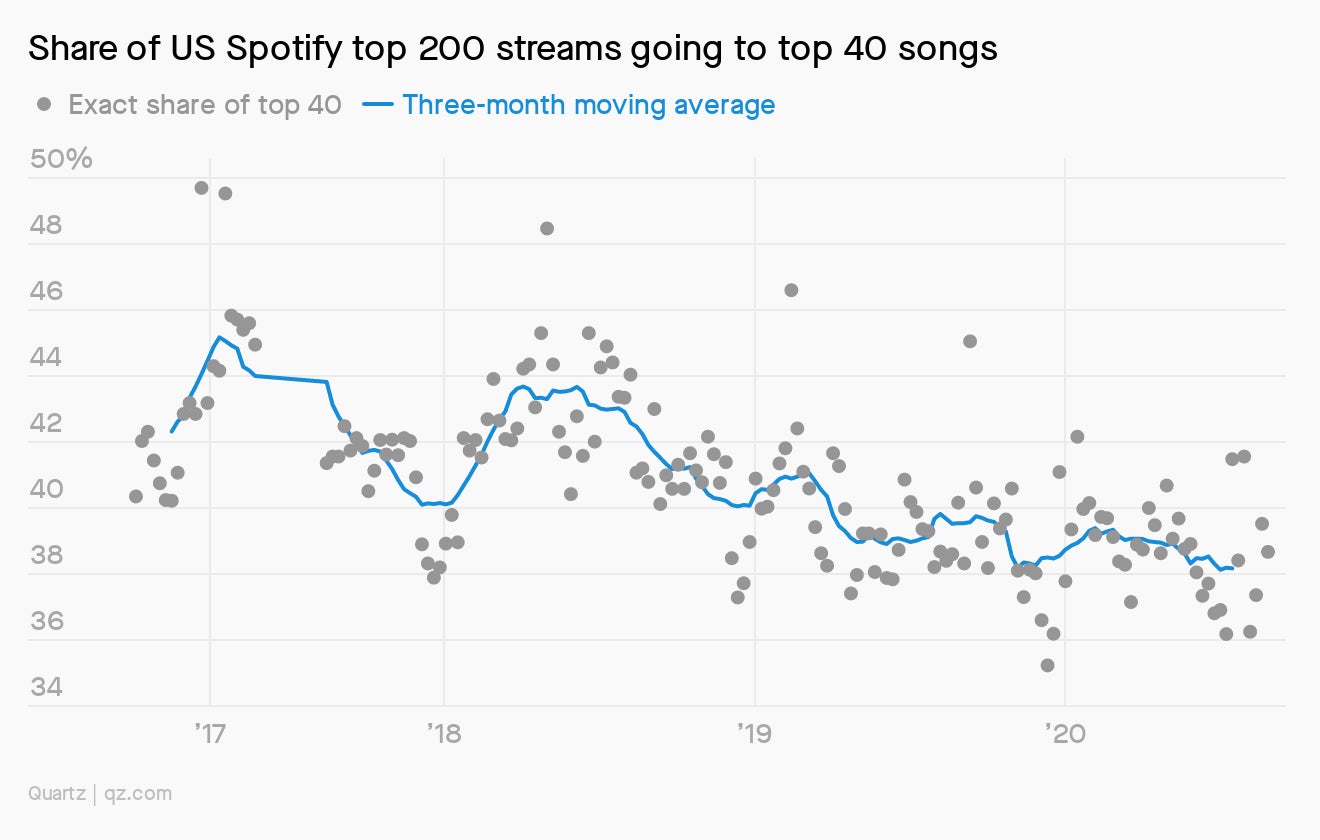Xinjiang cotton ban, Australia-China standoff, Winamp skin museum
Good morning, Quartz readers!

Good morning, Quartz readers!
Here’s what you need to know
Two Australian journalists were forced to leave China. Correspondents for the Australian Financial Review and Australian Broadcasting Corp. were evacuated from the country, after a days-long diplomatic standoff where authorities had banned them from leaving until they assisted with an investigation into the recent arrest of an Australian national working for state media in Beijing. No accredited journalists with Australian media remain in China.
Round eight of Brexit talks begins. Prime minister Boris Johnson has said that if a deal isn’t reached with the EU by Oct. 15, the UK would walk away and have a “no-deal Brexit” instead. Some see Johnson’s hardline and brinkmanship as an attempt to clinch a dramatic last-minute victory to restore his reputation in a year marred by setbacks for his image at home.
The US could announce a ban on Xinjiang cotton. The move comes amid concerns of the use of forced labor in the region, where a severe crackdown against Uyghur Muslims and other minorities is taking place. Any ban could have a huge impact on the global apparel industry. Separately, criticism is mounting over Disney’s Mulan remake, which was partly shot in Xinjiang and credits multiple government bodies linked to the incarceration of Muslims.
China has a data request. It announced an initiative calling on all countries to avoid conducting mass surveillance against other states and to ensure internet providers don’t use backdoors to steal user data, at a time when some countries are “bullying” others. It comes weeks after the US launched a “Clean Network” initiative to purge the country of Chinese apps.
A punch in the passport
No one has been spared from Covid-19 travel restrictions: The number of countries that can be accessed visa-free on any given passport has dropped 33%. But US citizens took the biggest hit, according to the Passport Index. As of Sept. 2, a US passport holder can travel to 86 countries without a pre-approved visa, down from 171 last year.
Thirty-four of the countries that US citizens can’t travel to have banned tourists from any country, while the rest have opened to some foreigners but not Americans. That leaves Americans experiencing a common inconvenience for the majority of the world’s population: Prior to the pandemic, most people didn’t have visa-free access to as many countries as Americans do now.

🔮 Cleaning your crystal ball
As summer drew to a close, Elaine Rich and her team were poring over data on the pandemic, trying to determine how much the decision to close schools would help contain it. They were consulting epidemiologists and their own internal modeling, but the complexity of the question was still staggering. Just how important were schools to the virus’s spread?
The virus Rich and her team were studying was not Covid-19—in fact, it wasn’t real at all. It was a video game simulation conducted as part of a research project called FOCUS (Forecasting Counterfactuals in Uncontrolled Settings), sponsored by the research branch of the US intelligence community.
The story of the first round of FOCUS, told here for the first time, is about more than a fascinating attempt to study how humans reason using video games. Together, the project, the participants, and the researchers offer a primer on the science of forecasting and decision-making. Read more in this week’s field guide.
✦ Not a member? There’s an easy decision. You can access our full library of guides—and enjoy a paywall-free Quartz—by joining today.
Charting the fall of the top 40
Something is happening to the way Americans listen to music. The biggest hits are getting a little less popular.
On a typical Wednesday in early 2018, the top 40 songs on Spotify in the US would get around 35 million streams. In 2020, they rarely hit 30 million. A more detailed look at daily streams for the top 200 songs shows that the share of top-200 streams going to the top 40 songs fell from about 44% of streams to 39%.

One explanation might be Spotify’s recent focus on discovery: playlists with songs its algorithms think users will like. In March, the streaming giant updated its homepage to highlight those playlists, and in a recent quarterly report (pdf), Spotify said that the number of artists making up the top 10% of streams rose by over 40% between 2019 and 2020. In other words, it used to be that a smaller number of artists were concentrated at the top, but now it’s more diffuse.
Obsession interlude: Beyond Silicon Valley
“The world of innovation needs a refresh.”
That’s Alex Lazarow, a Bay Area-based venture capitalist, academic, and author. In his book Out-Innovate, Lazarow argues that this refresh is already underway, largely in emerging markets. There are 480 startup hubs worldwide, he points out, and 10% of unicorns are located outside Silicon Valley.
In the era of coronavirus-fueled uncertainty, he says startups should not strive to be like Silicon Valley unicorns, but instead like camels: capitalizing on opportunity while focusing on sustainability and long-term growth—i.e. surviving droughts and pandemics from the get-go.
You can fill up on our Beyond Silicon Valley obsession here. Or keep reading:
- VC firms are collaborating to keep Nigerian startups alive
- TikTok’s US suitors could end up with a shell company
- Who’s winning the battle for India’s $700 billion retail industry?
Surprising discoveries
Sand thieves beware. A French tourist was fined over $1,000 for trying to smuggle some 4 lbs (1.8 kg) of sand from a Sardinia beach.
Take a trip down MP3 memory lane. A virtual museum is displaying 65,000 skins for Winamp, the music-playing software popular in the early days of the internet.
Scientists think plants could help find missing bodies. A corpse left to decompose in the woods changes the soil and surrounding trees, which might provide clues.
China banned Scratch. Authorities banned the MIT-designed programming language for kids because it allegedly contains “humiliating, fake, and libelous content about China.”
Experience Thai Airways, on the ground. The airline launched an aircraft-themed pop-up restaurant in Bangkok where people can sample in-flight meals.
Our best wishes for a productive day. Please send any news, comments, Thai airplane meals, and legal sand to [email protected]. Get the most out of Quartz by downloading our app on iOS and becoming a member. Today’s Daily Brief was brought to you by Isabella Steger, Mary Hui, and Kira Bindrim.